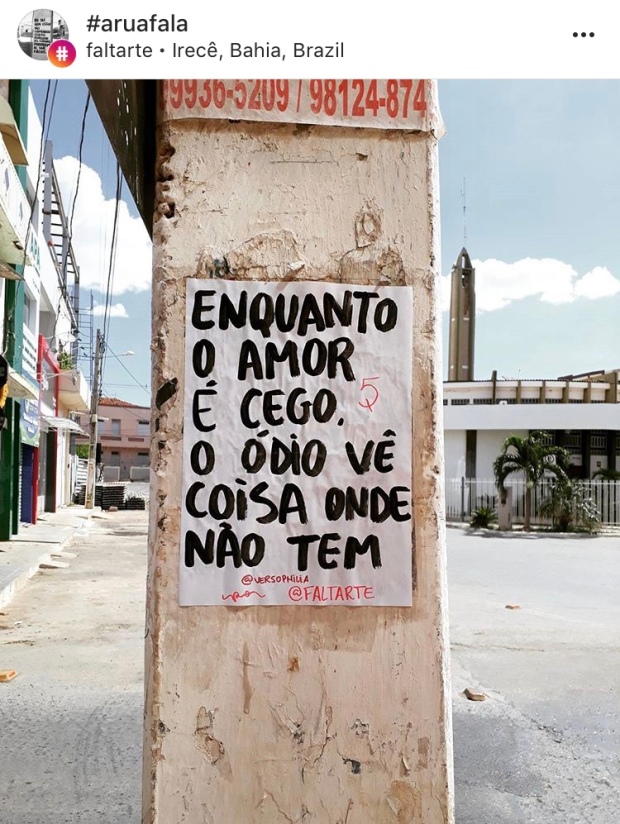A forma como a cidade incita e evidencia nossos medos e nossos desejos é algo que estimula meu estudo, minha busca interna, meu conhecimento sobre mim mesma e sobre a realidade.
Ítalo Calvino explicita esta relação nas suas cidades invisíveis, Walter Benjamin utiliza o flaneur de Baudelaire para falar das sensações do individuo em meio à multidão e ao fluxo da cidade, e Simmel evidencia o efeito blasé que a cidade provoca no indivíduo como uma reação aos intensos e incessantes estímulos que a cidade evoca.
Todos estes autores exploram as sensações e sentimentos que também tenho na cidade, mas quais são os sentimentos que são só meus? Reconhece-los dentro de uma realidade agressiva e intolerante, onde muitas pessoas passam por vivências dolorosas e desafiadoras, é bastante difícil, já que observo que minhas dores são muitas vezes pequenas perto das dores dos outros.
Ao mesmo tempo que amo desbravar e conhecer diferentes cidades, a cidade me dá medo. O medo pode ser provocado, incitado na cidade, para estimular o ódio e a segregação, para inibir que pessoas se unam e se manifestem, mantendo poderes nas mãos de uns e não sendo ampliados, passando para as mãos de outros.
A desconfiança e o medo sempre permearam minha relação com a cidade, mas será que eles são meus mesmo? Se o budismo prega que não existe diferença entre dentro e fora, eu e o outro, se somos todos um, então o medo e a desconfiança também não são somente em relação ao exterior, mas em relação ao meu interior também.
Obviamente que o medo é necessário, estar atento também é necessário, mas não quero que estas sensações e reações definam o que sou e o que a cidade é.
Explorar esses medos e essas desconfianças pode ser o caminho para dissolve-los e construir outras relações com a cidade. Vamos?
_________________
The way the city incites and evidences our fears and our desires is something that stimulates my study, my inner searches, my knowledge about myself and about reality.
Italo Calvino explicites this relationship in his invisible cities, Walter Benjamin uses Baudelaire’s flaneur to explain the sensations of the individual amidst the crowd and the city’s flows, and Simmel evidences the blasé effect that the city causes on the individual as a reaction to the intense and ceaseless stimuli that the city evokes.
All these authors explore the feelings and sensations that I also have in the city, but what feelings belongs only to myself? Recognizing them inside an aggressive and intolerant reality, where many people are going through painful and challenging experiences, it is very difficult, since I observe that my pains are often small near the pains of the others.
At the same time that I love to explore and to know different cities, the city gives me fear. Fear can be provoked, incited in the city, to encourage hatred and segregation, to inhibit people from uniting and manifesting, keeping powers in one’s hands and not being amplified, passing into the hands of others.
Mistrust and fear had always permeated my relationship with the city, but are they really mine? If Buddhism preaches that there is no difference between inside and outside, between the self and the other, if we are all one, then fear and distrust are also not only in relation to the outside, but in relation to my interior as well.
Obviously fear is necessary, being aware is also necessary, but I do not want these sensations and reactions to define what I am and what the city is.
Exploring these fears and these suspicions might be a way to dissolve them and to build other relationships with the city. Shall we?
